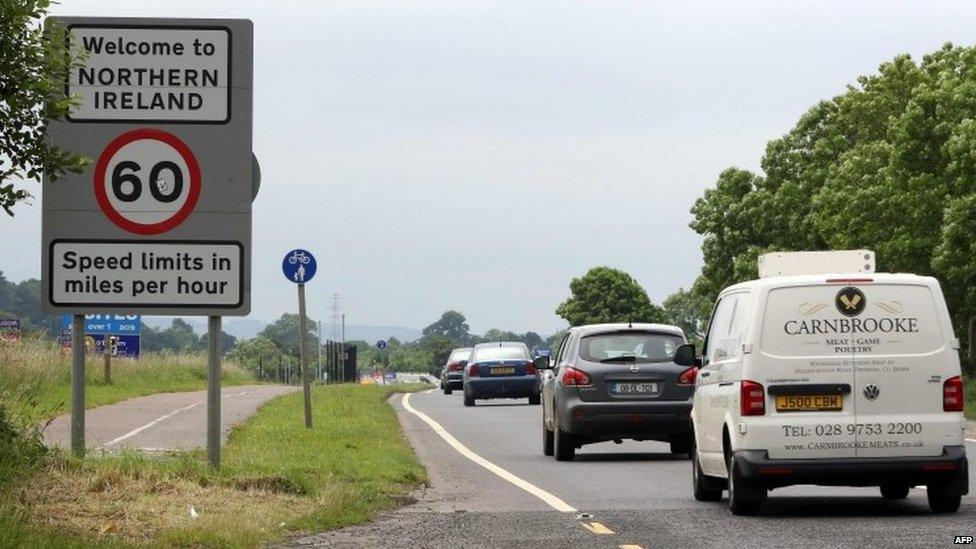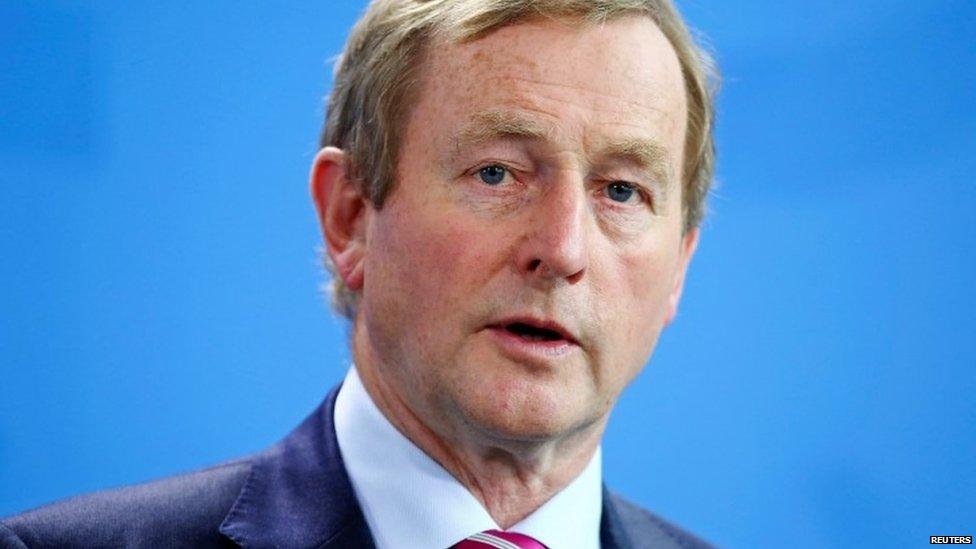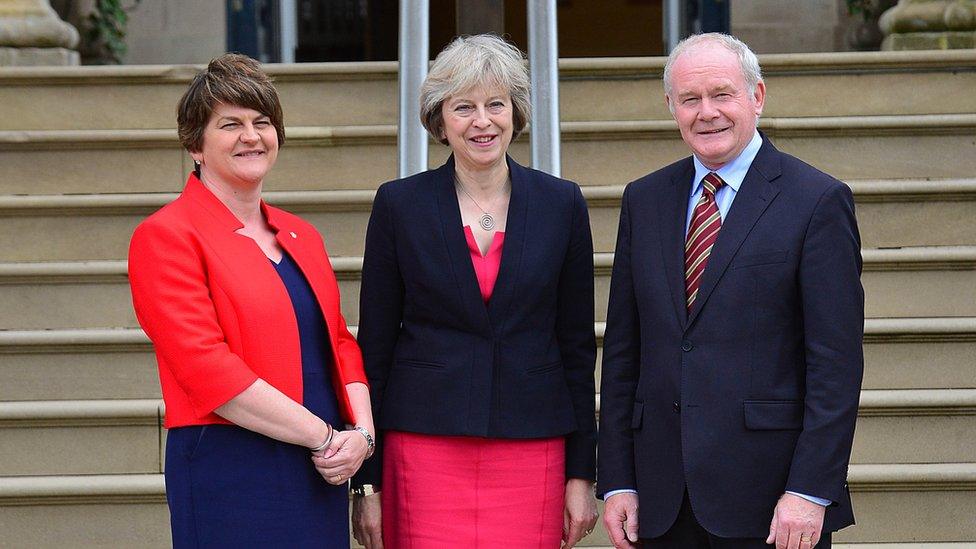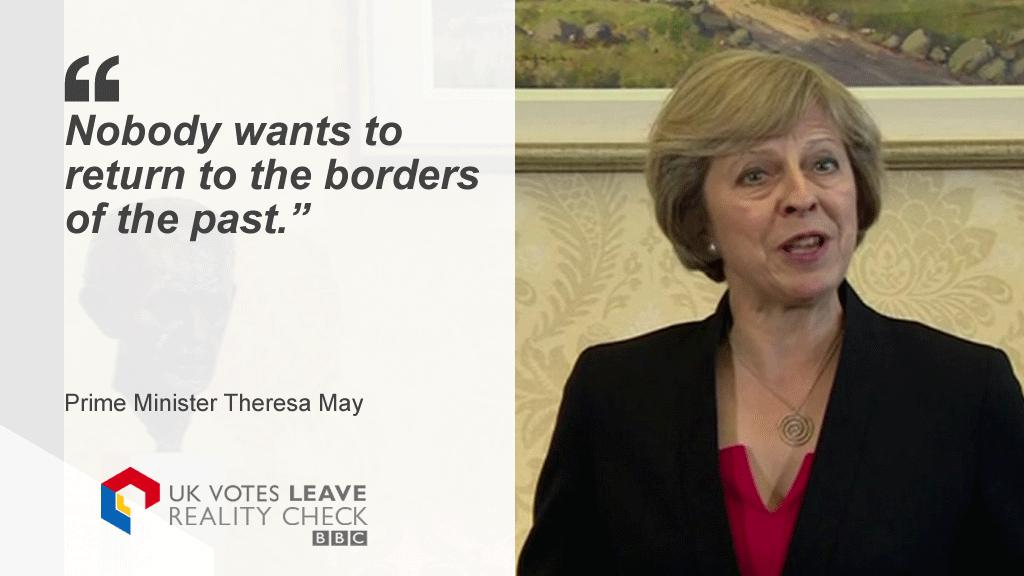Brexit: Theresa May to meet Irish PM Enda Kenny for talks
- Published

The UK government has insisted its common travel area with the Republic of Ireland will not be eroded
Theresa May is to meet Irish counterpart Enda Kenny for talks likely to be dominated by the fallout from the UK's vote to leave the EU.
The Irish Taoiseach will be the first foreign leader to visit Downing Street since Mrs May became prime minister.
The two are likely to focus on economic and border issues arising from Brexit.
The TUC has said the outline of an "all-Ireland" economic and security agreement is needed before the UK can press ahead with EU exit negotiations.
It is one of the five "tests" that the trade union group says the government must meet before it triggers Article 50 of the Lisbon Treaty - the formal mechanism for notifying the EU's other 27 members of the UK's intention to leave which will kick start the legal process of separation.
Mrs May has said this will not happen this year as the UK prepares its strategy, consults with the devolved administrations, business and industry and lays the ground work for what is expected to be several years of tough bargaining.
Reality Check: What does Brexit mean for the Irish border?
Reality Check: Will there be a referendum on a united Ireland?
Tuesday's talks with Mr Kenny are the latest in a series of one-to-one meetings that Mrs May is having with EU leaders after becoming PM.
She has already met German Chancellor Angela Merkel and French President Francois Hollande.
The meeting is expected to focus on the implications of Brexit for the UK's strong trade links with the Republic of Ireland, and the future of the common travel area (CTA), an open borders arrangement between the two nations dating back to the 1920s.
'Incalculable harm'
Questions have been raised about the future of the CTA - which allows people to move freely between the two countries and across land borders with minimal checks - given that limits on the free movement of people into the UK from the EU are expected.
Brexit will leave the border between Northern Ireland and the Irish Republic as the UK's land frontier with the EU, leading some to fear the institution of fixed controls across the border and stricter measures elsewhere.

Enda Kenny says the Irish Republic has been doing contingency planning in key areas to prepare for the UK's exit
Speaking during a visit to Belfast on Monday, in which she met unionist and republican political leaders, Mrs May said "no-one wanted a return to the borders of the past" and her aim was to deliver "a practical solution for everybody".
In a statement, Mr Kenny said the meeting would be an opportunity for "a strategic and constructive discussion on the impact of the referendum and how we are going to work together to protect the interests of all our citizens on these islands".
'Left-behind Britain'
The TUC said putting in place new immigration arrangements that distinguished between Irish citizens and those from the rest of the EU entering the UK should be one of the first priorities for the UK government in its Brexit planning.
"The only way to ensure that the UK's Brexit negotiations do not cause incalculable harm to the peace process, to the UK-Ireland economy and to the people of the two countries is to be clear in advance about the settlement that will be needed," said general secretary Frances O'Grady.
"That means a prior agreement must be made between the UK government, the Irish government and the Northern Ireland administration, covering the economy, migration and the peace process."
More generally, the TUC said unions must have a voice in Brexit talks to ensure the interests of "left-behind Britain" were represented and the desire of working people who voted to leave to have greater control of their their lives was fulfilled.
Warning that leaving the EU could end up benefiting an economic elite unless a clear plan was put in place to protect wages, investment and maintain demand, Ms O'Grady said a national debate was needed on options for post-Brexit Britain.
Clear aims and realistic objectives must be mapped out before Article 50 was triggered, she said, including a plan to support industries likely to be most affected to prevent the risk of an economic downturn.
- Published25 July 2016

- Published25 July 2016
